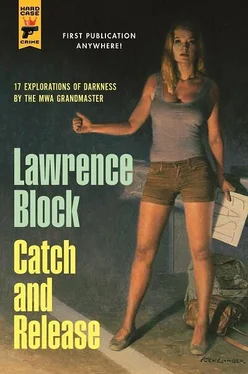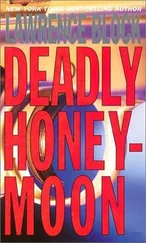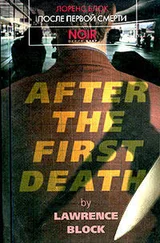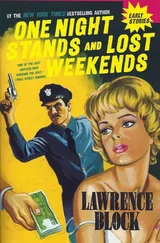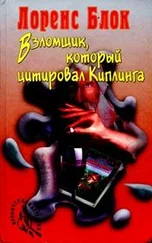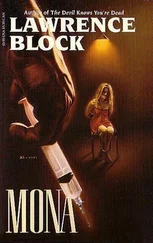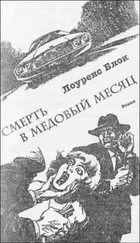“They shared equally,” the doctor remembered.
“And lived well, but well within their means. You could say they were businessmen whose business was illegal. They were profit-motivated, but is the desire for profit tantamount to greed?”
“But they became greedy,” the doctor observed. “And the greed altered their behavior. I assume these men had killed before.”
“Oh, yes.”
“But not wantonly, and they had never before turned on each other.”
“No.”
“The root of all evil,” the priest said, and the others looked at him. “Money,” he explained. “There was too much of it. That’s the point, isn’t it, Policeman? There was too much money.”
The policeman nodded. “That’s what I always thought,” he said. “They had been playing the game for years, but suddenly the stakes had been raised exponentially, and they were in over their heads. The moment the bearer bonds turned up, all the deaths that were to follow were carved in stone.” They nodded, and the policeman took up the pack of playing cards. “My deal, isn’t it?” He shuffled the pack, shuffled it again.
“I wonder,” the soldier said. “I wonder just what greed is.”
“I would say it’s like pornography,” the doctor said. “There was a senator who said he couldn’t define it, but he knew it when he saw it.”
“If he got an erection, it was pornography?”
“Something like that. But don’t we all know what greed is? And yet how easy is it to pin down?”
“It’s wanting more than you need,” the policeman suggested.
“Ah, but that hardly excludes anyone, does it? Anyone who aspires to more than life on a subsistence level wants more than he absolutely needs.”
“Perhaps,” the priest proposed, “it’s wanting more than you think you deserve.”
“Oh, I like that,” the doctor said. “It’s so wonderfully subjective. If I think I deserve — what was your phrase, Policeman? Something about dreaming of avarice?”
“‘Wealth beyond the dreams of avarice.’ And it’s not my phrase, I’m afraid, but Samuel Johnson’s.”
“A pity he’s not here to enliven this conversation, but we’ll have to make do without him. But if I think I deserve to have pots and pots of money, Priest, does that protect me from greed?” The priest frowned, considering the matter.
“I think it’s where it leads,” the policeman said. “If my desire for more moves me to sinful action, then the desire is greedy. If not, I simply want to better myself, and that’s a normal and innocent human desire, and where would we be without it?”
“Somewhere in New Jersey,” the doctor said. “Does anyone ever think himself to be greedy? You’re greedy, but I just want to make a better life for my family. Isn’t that how everyone sees it?”
“They always want it for the family,” the policeman agreed. “A man embezzles a million dollars and he explains he was just doing it for his family. As if it’s not greed if it’s on someone else’s behalf.”
“I’m reminded of the farmer,” said the priest, “who insisted he wasn’t at all greedy. He just wanted the land that bordered his own.”
The soldier snapped his fingers. “That’s it,” he said. “That’s the essence of greed, that it can never be satisfied. You always want more.” He shook his head. “Reminds me of a story,” he said.
“Then put down the cards,” the doctor said, “and let’s hear it.”
In my occupation (said the soldier) greed rarely plays a predominant role. Who becomes a soldier in order to make himself rich? Oh, there are areas of the world where a military career can indeed lead to wealth. One doesn’t think of an eastern warlord, for example, slogging it out with an eye on his pension and a cottage in the Cotswolds or a houseboat in Fort Lauderdale. In the western democracies, though, the activating sin is more apt to be pride. One yearns for promotions, for status, perhaps in some instances for political power. And financial reward often accompanies these prizes, but it’s not apt to be an end in itself.
Why do men choose a military career? For the security, I suppose. For self-respect, and the respect of one’s fellows. For the satisfaction of being a part of something larger than oneself, and not a money-grubbing soulless corporation but an organization bent on advancing and defending the interests of an entire nation. For many reasons, but rarely out of greed.
Even so, opportunities for profit sometimes arise. And greedy men sometimes find themselves in uniform — especially in time of war, when the draft sweeps up men who would not otherwise choose to clothe themselves in khaki. As often as not, such men make perfectly acceptable soldiers. There was a vogue some years ago for giving young criminals a choice — they could enlist in the armed forces or go to jail. This later went out of fashion, the argument against it being that it would turn the service into a sort of penitentiary without walls, filled with criminal types. But in my experience it often worked rather well. Removed from his home environment, and thrown into a world where greed had little opportunity to find satisfaction, the young man was apt to do just fine. The change might or might not last after his military obligation was over, of course.
But let’s get down to cases. At the end of the second world war, Allied soldiers in Europe suddenly found several opportunities for profit. They had access to essential goods that were in short supply among the civilian population, and a black market sprang up instantly in cigarettes, chocolate, and liquor, along with such non-essentials as food and clothing. Some soldiers traded Hershey bars and packs of Camels for a fraulein’s sexual favors; others parlayed goods from the PX into a small fortune, buying and selling and trading with dispatch.
There was nothing in Gary Carmody’s background to suggest that he would become an illicit entrepreneur at war’s end. He grew up on a farm in the Corn Belt and enlisted in the army shortly after Pearl Harbor. He was assigned to the infantry and participated in the invasion of Italy, where he picked up a Purple Heart and a shoulder wound at Salerno. Upon recovery from his injury, he was shipped to England, where in due course he took part in the Normandy invasion, landing at Utah Beach and helping to push the Wehrmacht across France. He earned a second Purple Heart during the German counterattack, along with a Bronze Star. He recuperated at a field hospital — the machine-gun bullet broke a rib, but did no major damage — and he was back in harness marching across the Rhine around the time the Germans surrendered.
Neither the bullets he’d taken nor the revelations of the concentration camps led Gary to a blanket condemnation of the entire German nation. While he thought the Nazis ought to be rounded up and shot, and that shooting was probably too good for the SS, he didn’t see anything wrong with the German women. They were at once forthright and feminine, and their accents were a lot more charming than the Nazis in the war movies. He had a couple of dates, and then he met a blue-eyed blonde named Helga, and they hit it off. He brought her presents, of course — it was only fitting, the Germans had nothing and what was the big deal in bringing some chocolate and cigarettes? Back home you’d take flowers or candy, and maybe go out to a restaurant, and nobody thought of it as prostitution. He brought a pair of nylons one day, and she tried them on at once, and one thing led to another. Afterward they lay together in her narrow bed and she reached to stroke the stockings, which they hadn’t bothered to remove. She said, “You can get more of these, liebchen?”
“Did they get a run in them already?”
“Gott, I hope not. No, I was thinking. We could make money together.”
Читать дальше
